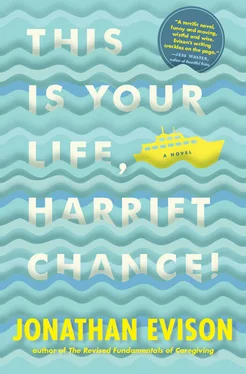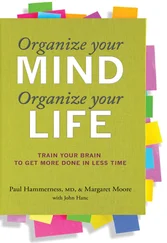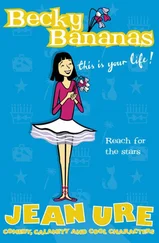You can’t remember getting old. You can’t remember when exactly you started carrying umbrellas just in case, when you started scheduling your weekly hair washings, oversalting your food, or reusing zipper-lock bags. It happened gradually. The years just wore you away, dulled your edges, leached the color from your face, and flattened you out like river rocks. Again, not the point. The point — not to belabor it — is: you’re old, sapless and enfeebled, especially Bernard, and yet, you’re still trying, both of you. Still able. The world shakes its fists and rolls its eyes at you as you gum up traffic and slow down lines, and pay for every blasted thing in exact change, but by God, the Chances are not about to cloister themselves at home with their creamed corn and network television, no, they’re still out there wrestling with the world at large, still going toe-to-toe with progress, still absorbing change, slowly.
But when you turn to Bernard in the glow of the credits, expecting to share his vague disenchantment with the evening’s lukewarm cinematic fare, he looks dazed and frightened and something else: unreachable.
Dear, you say, are you okay?
Yes, yes, fine.
But his tongue is heavy, and he sounds a million miles away. And he’s slow to rise from his seat, and it’s not a cautious slow. You reason that he must have nodded off during the film (heaven knows, you almost did), and that the sleep state has left him disoriented.
On the trip home, in spite of timeworn custom, you do the driving, and he doesn’t make a fuss over the fact. In the passenger’s seat, he slumps in silence, and by no means a thoughtful silence. Something smells like urine.
At some point during that forgettable movie, your husband has forgotten a great deal more.
This is your life, Harriet Chance, falling off a cliff.
Only later will you discover that Bernard has had “an event”—let’s call it a stroke — and that it’s likely not the first. Only later will you learn about the plaque on his brain. But let’s face it, Harriet. You hardly have time to take it all in, it happens so fast. In three months’ time, the police will find him wandering Cline Spit in his pajamas. In six months, he will not remember your name. In a year, he won’t remember his own.
August 20, 2015 (HARRIET AT SEVENTY-EIGHT)
Harriet is awakened rudely at 9:40 a.m. by the shrill crackle of the public address speaker heralding the Zuiderdam ’s imminent arrival in the port of Juneau. Mired in a state of throbbing paralysis, Harriet is surprised to find herself sprawled atop the covers, still wearing her blue China dress, her lips chapped, her hair a mess, and one of her earrings missing. She remembers quite clearly everything up to the pleasant young bartender — the headiness of the wine, the hum of the party, the warmth of Powder Blue’s piano. Beyond that, her recollections are so spotty, so scattered and diffuse, as to possess a dreamlike obscurity. Systematically, Harriet begins collecting these fragments of memory like shards of glass, trying to piece the previous night back together. There was some awkwardness with a young Asian woman, some trouble with crab legs. Broken glass. Some shouting. Dear God, was she rolling on the carpet at some point? There was some sort of scene, with onlookers. Crew members were involved.
The only thing standing between Harriet and a state of pure panic is her sorry physical state: her swollen brain beating in her head like a second heart, her stomach hardened to a fist, her shallow breath rising like ether fumes from her throat. She closes her eyes and stares at the back of her eyelids, desperately summoning sleep. But it’s no use. The beating in her skull is too loud to ignore, almost loud enough to drown out the public address system still rattling on about docking procedure in Juneau. Slowly, she rolls off the bed and onto her feet, her stomach rising fast as she reaches for her water bottle. Dizzily, she stands at the bedside, squinting against the daylight until the room stops spinning and the PA ceases its squawking.
Shuffling to the bathroom, she washes down half a Vicodin, avoiding her reflection in the mirror. Clutching the grab bar, she lowers herself onto the toilet, where remorse settles in around her like a thick fog. Though her instinct is to crawl under a rock, she must flee this ship at the first possible opportunity. But for the next twenty-five minutes, the best she can do is sit on the toilet, clutch her face in her hands, warding off nausea and waiting for the Vicodin to take hold.
It’s 11:00 a.m. before she feels human again, just in time to hear the rapping on her cabin door. Harriet sits perfectly still on the edge of the bed, holding her breath until, to her relief, the knocking ceases. But no sooner has it stopped than her door swings open and her cabin steward, Rudy, walks in carrying a stack of fresh towels.
“Oh, Ms. Chance. I thought you’d be ashore with the others.”
“I was just freshening up, dear.”
“Ah,” he says. “How are you feeling this morning? You are well?”
“Fine, thank you.”
“That’s good,” he says, averting his eyes. “We were concerned.”
Harriet’s ears burn.
“We weren’t sure who you were yelling at,” he explains. “And you wouldn’t let us help you off the ground. We tried to get the crab leg out of your hand, but you wouldn’t let go. The doctor kept asking you if were taking any—”
“Thank you for your concern, Rudy,” Harriet interjects. “Actually, I’ve got a bit of a headache.”
“Would you like me to come back later?” he says.
“Yes, dear. Would you mind?”
The minute Rudy leaves without replenishing the towels, Harriet finishes packing her handbag and doesn’t bother with makeup. When the coast is clear, she steals down the corridor toward the elevators, where she promptly runs into another one of the young stewards, Wayan.
“Ah, good afternoon, Ms. Chance.”
“Hello.”
Is it Harriet’s imagination, or is the young man hiding a smirk? Was he there? Is the whole crew talking about her?
“Going ashore?” he asks.
“Yes, dear.”
“This fog is supposed to lift. You should take the Mount Roberts Tram.”
This friendly exchange eases Harriet’s mind immediately.
“Thank you for the tip, dear.”
“Certainly,” he says. “And if you get hungry, might I recommend Tracy’s King Crab Shack on Franklin Street?”
“Oh?” says Harriet.
“The bisque and the rolls are superb.” Wayan pursues. “That is, I mean, if you’re not in the mood for crab legs.”
He is smirking, the little hyena — she’s sure of it!
A RUGGED LITTLE HAMLET of chipping paint, weather-beaten wood, and yellow brick, Juneau hunkers at the base of two gigantic mountains, half shrouded in fog. So sudden and precipitous is the terrain that the town has nowhere to sprawl. Even the hulking cruise ships ringing the harbor stem to stern — each one a city in its own right — appear tiny in the shadow of such grandeur. The little harbor buzzes with tourism. Everywhere Harriet looks she sees a guide in a windbreaker handing out brochures, a sandwich board promising discounts, a taxi crawling past. Everywhere, cruisers gawk and gander and graze, clutching digital cameras and street maps, their sweatshirts emblazoned with moose and grizzly bears.
Though the fresh air enlivens Harriet somewhat, her head still throbs, and she suffers from an unquenchable thirst, which seems to rise up from the pit of her stomach. She doesn’t dare eat, for fear she won’t keep down the food. She doesn’t dare wander too far, for fear she’ll collapse. Still, her condition has improved markedly and, with it, the day’s prospects. Indeed, the fog is just beginning to break, and the great craggy peaks are beginning to show themselves.
Читать дальше












